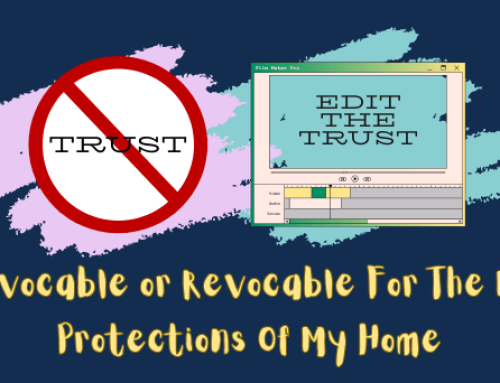Greetings, everyone! Emilio here with A.W.A.R.E – AreWeAllReallyEducated.com
I am excited to share with you tonight some GROUNDBREAKING information to those who are not aware about how to get reimbursement back from the Treasury, the lawful way. People have been emailing A.W.A.R.E inquiring about how they can get reimbursement back.
So I thought it would be great to share on this call how I and many others are getting REFUNDED back from the Treasury and redeeming lawful money pursuant to 12 U.S.C. § 411.
This process will work for you if you have a job that pays you in checks and/or any forms of deposits; you’ll be able to utilize this lawful money redeeming process. We’ve got case laws to stand on these claims, too!
Disclaimer: The information I’m going to share with you tonight is for educational and entertainment purposes only. This knowledge is not to be understood as legal advice. If you seek legal advice, find yourself a competent lawyer or accountant to help you overstand this lawful money process to use for your benefit.
What is Lawful Money?
In short, lawful money is your path to FREEDOM!
According to Investopedia, Lawful money is any for form of currency issued by the United States Treasury, and not the Federal Reserve System. It includes gold and silver coins, Treasury notes, and Treasury bonds. Lawful money stands in contrast to fiat money, in which the government assigns value although it has no intrinsic value of its own and is not backed by reserves. Fiat money includes legal tender such as paper money, checks, drafts and bank notes.
Lawful money is also known as “specie”, which means “in actual form.”
Breaking Down Lawful Money
Are you aware?
The dollar bills that we carry around in our wallets are not considered lawful money. The notation on the bottom of a U.S. dollar bill reads “Legal Tender for All Debts, Public and Private”, and is issued by the U.S. Federal Reserve, not the U.S. Treasury. Legal tender can be exchanged for an equivalent amount of lawful money, but macro-effects such as inflation can change the value of fiat money. Lawful money is said to be the most direct form of ownership, but for purposes of practicality, it has little use in direct transactions between parties.
Breaking Down Lawful Money
The Federal Reserve Act of 1913, which established the Federal Reserve System and authorizes it to issue Federal Reserve notes, states that “[Federal Reserve notes] shall be obligations of the United States and shall be receivable by all national and member banks and Federal reserve banks and for all taxes, customs, and other public dues. They shall be redeemed in lawful money on demand at the Treasury Department of the United States, in the city of Washington, District of Columbia, or at any Federal Reserve bank.” However, the Act did not explicitly define what lawful money meant.
Since some currencies that could be used by national banking associations as “lawful money reserves” were not considered a legal tender, Congress amended the Federal Reserve Act in 1933 to include all U.S. coins and currency as legal tender for all purposes. The 1933 amendment extended the power of legal tender to all types of money, creating dissension on whether paper money and reserves of the Federal Reserve bank are lawful money.
Breaking Down Lawful Money
While some argue that Federal Reserve notes are lawful money, others tend to disagree.
Since the U.S. Constitution states “no State shall make any Thing but Gold and Silver Coin a Tender in Payment of Debts,” some believe that this is the definition of lawful money and, thus, any payment other than gold or silver is not considered lawful money. In effect, the primary meaning of lawful money is legal tender, but a broader interpretation is frequently applied in certain contexts.
“GOLD IS MONEY. EVERYTHING ELSE IS CREDIT.”
– J.P Morgan
Testifying to Congress in 1912
Supporting Case Laws
Federal reserve notes are dual purpose notes.
Volume 20 Action 31 Book American Jurisprudence Acts of Congress
Westlaw Lexus Nexus – 82 cases on lawful money not many know
Case 1982 Luis vs Page 1239 how to read court case
Redeem lawful money on form 1040 pursuant to United States Currency Code Title 12 banking codes
The IRS form 1040 changed. On line 6, on the second page, you enter your income as a negative number by putting the income amount to redeem in parentheses ($). You can redeem funds for the entire year and get lawful money. So if you’re claiming lawful money for this year, 2019, you’ll enter the entire 2019 gross income on line 6.
On the new 1040 form: To redeem lawful money is on Schedule 1: Additional Income, on line 21, enter the entire income for 2019 and write it as a negative number. The demand for lawful money, is written on line 21 as well. And duplicate it on line 22.
State returns are on the last pages of form 1040. Observe that standard deductions are also accounted for both federal and state.
INTRODUCTION ON LAWFUL MONEY
For example purposes, let’s say, JOHN DOE owes back taxes from 2017 of $6,000 because JOHN DOE endorsed fed notes in 2017 and did not pay his legitimate taxes for a few months that year. Therefore, the IRS is expected to deduct what JOHN DOE owes from the total amount they are sending back. So let’s say the took $20,000 from JOHN DOE for taxes in 2018. Since JOHN DOE owes them from 2017, they would be sending JOHN DOE back $14,000 because they deducted the $6k from the $20k. Is that comprehendable?
Next year, JOHN DOE will get 100% of his withholdings back forever moving forward. He’ll never have to lose a dollar to the IRS again as long as JOHN DOE continues redeeming lawful money. .
With this lawful money process, this is how we end the FEDS!
Tax filing update for lawful money
The IRS changed form 1040 on line 21. Prior to tax filing for 2018, the line 21: other income: “lawful money deduction” with the amount redeemed for the year in parentheses (X) in the line 21 with other steps required is all there to properly “claim” the lawful money redeemed for the entire year to get your money back and not be subjected to income tax.
On line 21, this has changed: On form 1040, other income is no longer exists. The IRS has added “Schedule” for one to fill out if his taxes are “more complicated” than the normal American who endorsed the Federal Reserve all year and has no other means of income, deductions, credits, etc., as photoed above.
PAY ATTENTION TO THE LANGUAGE! We conclude that we will be making our *claim* for lawful money *deduction* on Schedule No. 1, or Schedule No. Given the nature of lawful money, and based on the language used in the IRS schedules.
HOW TO WRITE THE NON ENDORSEMENT FOR LAWFUL MONEY
This process is simple and will work for you if you have a job that pays you by check and works when you deposit cash into your bank account.
NON ENDORSEMENT ON CHECKS & CASH DEPOSIT
On the back of checks or on the back of cash deposit slips, you simply write verbiage which is the following:
Redeem in lawful money per 12 U.S.C § 411 by,
autograph your name in red ink, All Rights Reserved, Without Prejudice, U.C.C
Note: Autograph your name in red ink, followed by “All Rights Reserved, Without Prejudice, UCC 1-308
How to Redeem Lawful Money Using Direct Deposit
Makes copies of your pay stubs. On the copies, you’ll write the redemption verbiage and make copies of that.
You’ll keep the original and the original copies and send the second copies in with your tax filing.
The Purpose of Writing The Non Endorsement
The purpose of writing the non-endorsement on the check is to record it for tax purposes so you need to deposit the check with the non-endorsement written on it in blue ink, autographing your name in red ink.
If you just sign it with only your signature, then you are endorsing fed notes. Even if you cash the check you still need to non endorse it and make a copy the check you cashed or also write the non-endorsement on the check stub as well so you can file it with your taxes.
There is NOTHING to be afraid of at the bank. Those employees don’t even know what a federal reserve note is and they handle them all day. The banking system is set up that way on purpose so that they have uneducated sheeple working at the bank. Try going into a different bank and don’t say a word. Just deposit the check. Act nonchalant about it as if you do it all the time… just hand the check over and say “I’m making a deposit.” That’s it. The teller might look at the check for a minute but will deposit the check unless you say something and ruin it. Just trust that they will say nothing and if they ask you what you wrote simply say it’s for tax recording purposes.
HOW TO REDEEM LAWFUL MONEY TO GET REFUNDED BACK FROM THE TREASURY!
Redeeming Lawful Money on Form 1040
During tax season, you can claim lawful money by redeeming it on IRS form 1040.
Since the IRS form 1040 line 21 has changed The IRS has added “Schedules” for one to fill out if his taxes are “more complicated” than the normal American who endorsed the Federal Reserve all year and has no other means of income, deductions, credits, etc.
Form 1040 line 21 is “other income” and since lawful money is NOT a Federal reserve note, it constitutes as being a separate form of income.
You can either redeem for the entire year or if you do not redeem the amount for the full year, write the redeemed amount as a negative amount by putting the amount redeemed in parenthesis on line 21.
Are you aware of when do you put parentheses ( ) around a number?
Parentheses around numbers could have different meanings. Here are a few definitions to know:
- An amount in parentheses could indicate a negative amount, such as a negative balance in your check register.
- Sometimes an amount in parentheses signifies a credit balance in an account normally having a debit balance or even a debit balance in an account that normally has a credit balance.
- Some accountants use the parentheses to simply indicate credit entries. Amounts without parentheses are debit entries.Here’s a suggestion for everyone asking what to do about banks using digital signing pads in lieu of the traditional paper contracts and/or banks refusing to allow you to add anything other than your name.Take your business elsewhere. If that isn’t possible, I would suggest that you ask, firmly, insist that you need the paper signature card for the sake of tax records. Tell them your CPA said you need them. Try to maintain a thread of consistency. Every chance you get to state your claim in lawful money redemption, take it.
Lawful Money TIP:if you’re demanding lawful money, go into your online bank account and go to your account preferences or settings. You should be able to edit the names of your accounts. Usually the default the names of your accounts is “Checking” or “Savings” but change it to “Lawful Money Checking 12USC411” and the same for the Savings Account. This is not a necessity however it validates your actions even further by proving you are redeeming your paychecks [in] lawful money. Also, it helps when bringing “Non-Endorsed” checks to the bank teller. When they see the name of the account, they will be less likely ask about your Non-Endorsement.
You may run into some trouble at other banks, but if you remain staunchly and persistent, you can get it down by asserting yourself when they were about to turn you away. If you run into any kind of trouble, let them know you know what you’re doing, and that the redemption verbiage does not apply to them, and that it is between you and the IRS. Be confident and in control of the situation.
At the end of the day, the people working at the bank (just like most everyone else) are scared of what they don’t know, and they don’t want to lose their jobs and don’t like abnormal customs, though fully legal. Don’t full on educate them, that’s the bank’s legal department’s job; just tell them it is a form of endorse, which is allowed pursuant their endorsement section of the bank contract (WHICH IS WHY YOU NEED TO READ IT!!!), Emilio read the contract, and pointed this out to the person helping him. It’s not easy, but it isn’t hard if you know what you’re doing, which is why I tell you to educate yourself and not just ask me to feed you the info. I’m not going to be at the bank with you.
You need to do this on your own. You know what you’re talking about and can defend your actions, then you will be fine, but if I told you what to do, you won’t be able to say “hold up I gotta check”… Be able to defend your actions.
Here at A.W.A.R.E, we’re creating a community of people who are eager to learn, become aware and mpst importantly, to DO. Our website and a channel have served as an excellent feedback loop for spreading truth and enlightenment.
This lawful money process works for digital invoices too!
Everything is trust law because we’re dealing with fiction and non-fiction. Patrick Devine spoke a lot about how everything is trust law and how crucial it is to master.
We need to start living like we have full control of our Cestui Que Trust. Our property to the system when we sign our name to everything. We the people are the trustees of our own trusts. Every time we sign things, we should be making our demands addressed around our signatures.
To learn about taxation, read McCulloch v. Maryland. The gist: the principle of taxation is you can #tax what you create, so what is being taxed? What did the State create?
LEGAL FICTION 14TH AMENDMENT SLAVES
You have two options: Endorse the federal reserve private credit system; or redeem lawful money pursuant 12 U.S.C. § 411
Taxation is voluntary
The fed notes are debt notes, and represent a paramount lien for the fed (48 Stat. 337 § 2), so that means they could file a claim against you for the debt owed; however, you enjoy the sovereign status of “holder in due course.” Being holder in due course saves you from claims being made against you, so the fed can’t file claims against you for the fed notes.
This is what’s being taxed. Your income isn’t being taxed, because that would make the income tax a direct tax which would be unconstitutional; the income tax is an indirect tax, and an indirect tax is synonymous with privilege tax. The income is the basis of the tax, not what’s being taxed. It’s the basis of the tax because your income is used to measure the degree to which you enjoyed the sovereign status of being a holder in due course.
ARE YOU AWARE?
The one dollar bill has 2 images (Authorization/Ownership seals) on it.
Federal Reserve (left)
The Department of the Treasury (right)
Make the “right” choice
Federal Reserve Act Remedy
CHAPTER 3 SUBCHAPTER XII § 411
§ 411. Issuance to reserve banks; nature of obligation; redemption
“Federal reserve notes, to be issued at the discretion of the Board of Governors of the Federal Reserve System for the purpose of making advances to Federal reserve banks through the Federal reserve agents as hereinafter set forth and for no other purpose, are authorized. The said notes shall be obligations of the United States and shall be receivable by all national and member banks and Federal reserve banks and for all taxes, customs, and other public dues. They shall be redeemed in lawful money on demand at the Treasury Department of the United States, in the city of Washington, District of Columbia, or at any Federal Reserve bank.”
No contract = no obligation.
The steps shared in this presentation are just the basics and should be your first steps to getting money back from the Treasury IF you follow the proper instructions and begin to apply this process that puts money in your pocket almost immediately!
However, you have to NOT stop here. At this point, you must pay it forward and teach others. Set yourself up in the private. While you do not need to be an SPC to follow this process, we recommend that you take the time to still secure yourself in your path to sovereingty.
This process works at any bank!
So if you created your private and creditor status, then you have proof of
1.) you are the agent/heir of the ESTATE/ALL CAPITAL/STRAWMAN/ENS LEGIS
2.) you know how to operate on the private and you know the game of commerce
We are getting smart as a society but unfortunately, people are not getting smart with the people in their inner circle.
TIMES HAVE CHANGED.
Warren Buffet, one of the wealthiest man in the world, made predictions he was wrong and missed out on opportunities he thought were not going to be successful. For instance, Buffet said, “Jeff Bezos has done is something close to a miracle… The problem is when I think something will be a miracle, I tend not to bet on it.” With cryptocurrency, Buffett has a long history of trash talking cryptocurrency, saying “will come to a bad ending.”
So quite like Warren Buffet and his predictions, most people’s mindset is in the old times. As times change, so does the processes of a law change.
Opening a Lawful Money Trust Account
This is where you write your redemption verbiage for a lawful money account. The lady helping me setup my account and she did not mention the endorsement on the signature card. I did not say anything special, or do anything outside of the ordinary. I just walked in, asked if I could open an account with the bank and they helped me per usual.
After the account had been established and I deposited $40 cash right then and there, and I started to receive a little friction….
Another employee there, most likely the manager, was asking me about my signature card. She did not know about the redemption and started asking me about it. I did not lecture her. I simply told her it was the type of endorsement I wanted to use for the account. I’m pretty sure me saying “all transactions” is what confused her. She told me that they don’t inspect every transaction and referenced the Check 21 Act. Her concern was that my restrictive endorsement might not be acknowledged because the bank doesn’t overlook “all transactions” since they went digital. She was saying that the bank is not liable for any improperly endorsed transactions. I thought this was odd because a signed check is an endorsed check..
Anyways, the account is open with lawful money in it! I’m still going to use paper checks with the written redemption verbiage for the sake of being thorough.
There is information overload.
People are having information overload. This is why they are confused and not having a remedy because they are trying everyone’s different processes. These supposed “gurus” tell you to do things that don’t make sense such as making you do things like print out so many copies and spend money on processes that do not work.
Be vigilant on who you are learning from. Read case laws, learn and study the UCC 3 to set off debts, write negotiable instruments, and learn how to write checks.
On our next call, we’re going to be sharing the steps on how to open your lawful money trust account!
~~~~~~~~~~~~~~~~~~~~
Thank you for listening. If you have a question, please ask it in the comments section below.
Stay aware! Peace and blissings!








Hello, Thanks so much for this information. How will this work if you want to register your business?
Thanks!
Your business should be owned by a trust. You write a contract between the trust and the trustees and add your lawful money verbiage. and how it will be used. Or do minutes. Simple.